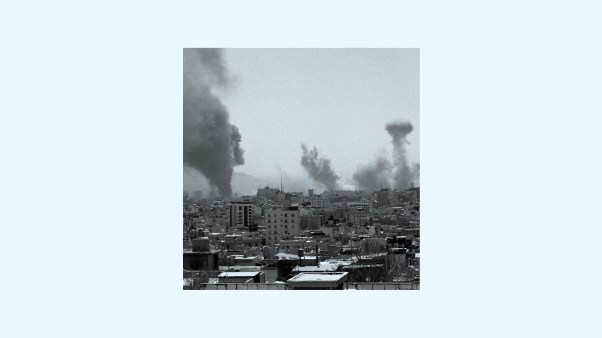Early in the morning, amid thunder and lightning and steady rain, a great rumble shook our house. Something—maybe it was the semicoherent prayer I uttered as the timbers creaked—reminded me of Scott Cairns’ Idiot Psalms, a new collection of his poems recently published by Paraclete Press. (The physical book, by the way, is gorgeous; I feel as if I should have one reading copy and one simply to pick up and admire now and then, pristine.) Scott is one of my favorite contemporary poets, and I’m proud to say that one poem in the title sequence, “Idiot Psalm 6,” was published in Books & Culture in 2010 (then it was titled “Idiot Psalm X“), though, alas, this isn’t noted in the acknowledgments.
A couple of weeks ago, Wendy and I drove to Indiana Wesleyan University for an event in the President’s Author Series. I interviewed Mary Ann Glendon (whom Wendy and I were meeting for the first time) in a public setting, with students and faculty from the John Wesley Honors College at IWU. Mary Ann and I talked about her splendid book The Forum and the Tower: How Scholars and Politicians Have Imagined the World, from Plato to Eleanor Roosevelt, and students from the Honors College asked her some very good questions. On our drive back to Wheaton the next morning, Wendy and I listened to Parable, a cd featuring Scott Cairns reading 26 poems, with musical interludes by Jeff Johnson, Roy Salmond, and Wendy Goodwin. (The cover of the cd is a detail from a painting by Bruce Herman.) Some poets are terrible readers of their own work; some are passable; and some (like Scott) allow you to hear their poems in your head forever after.
(On that drive home, lest you think us impossibly high-minded, Wendy and I also listened to a tasty two-CD compilation of cumbia and then shifted to the Brother Cadfael audio book we currently have going, The Rose Rent, written by Ellis Peters and narrated—as they say—by the incomparable Patrick Tull.)
Over the last few years, Marilyn Chandler McEntyre has written a remarkable series of books—not a “series” in the sense of a single multivolume project but unified by a distinctive angle of approach. These books are fresh, concise, not quite fitting in familiar genres, informed by scholarly learning and literary study but not “academic.” It must give her great joy to write just the sort of books she wants to write, and that joy is contagious. Her latest, from Eerdmans—What’s in a Phrase? Pausing Where Scripture Gives You Pause—is a slim volume of brief meditations, each one triggered by a very brief passage from the Bible. Put this on your bedside table as soon as possible.
I had been reading McEntyre’s book when the latest issue of Comment arrived. The theme for this issue, “Faithful Compromise,” couldn’t be more timely. James K. A. Smith’s editorial introducing the theme begins with a quotation from Oliver O’Donovan: “Faithful witness is an abstract ideal, which can take no form in the world as it is; compromise, therefore, is the law of our being, and no-one, not even Jesus himself, can get by without striking bargains.” Smith twice refers to O’Donovan’s “provocative claim.” It’s too bad that “provocative” has been so often and so carelessly deployed that the word has lost much of its force, but this opening sally is indeed a provocation. (That “not even Jesus himself,” taken by itself, is explosive.) You should read Smith’s editorial to see how he unpacks what O’Donovan means, and then turn to Marilyn Chandler McEntyre’s essay “The Grey Area Is Holy Ground: Practicing a Compromising Faith.” (There’s a good deal more in the issue, too, that’s worth your time.)
Yesterday morning, I got an email from Rome:
We live in an amazing world constantly reminded of imago Dei, and the need for fellowship with our Creator and his creation. Now the internet opens doors to friends from afar. I’m reading your Books & Culture newsletter here at Rome’s Minerva hotel, which casts it shadow for half the day on Bernini’s elephant obelisk statue, a hundred yards or so from the back of the Pantheon.To my left sits George Costanza and his son, but I’ll not interrupt them to chat about Seinfeld; it’s a blessing to see any father and son spending time together on what is likely a vacation. And for me, I’m suddenly preoccupied with a friend’s newsletter and finding myself digitally reminded of a network of colleagues part of the great dialogue or, as might be appropriate with B&C, the greatest of dialogues.
What a lovely way to start my day. Two days earlier, a card came from another one of our writers:
After weeks of interrupted attempts, I finally have time to write and let you know how much I’m enjoying the recent issue of B&C. As I read, I find myself standing in the streets of Turin with mad Nietzsche, fleeing gangs in Cape Town, and sitting in a sanctuary with [Richard] Rodriguez, reciting the Lord’s Prayer … . I know B&C has gone through some tumult of late, and with that in mind, I’m so grateful the magazine survives. It’s a gift to all of us, your readers.
I’m also glad that the magazine survives—and thankful for such encouraging words. I’m thankful, too, for the generous response from all of you who have contributed to our support. Since the start of the year, we have been receiving donations fulfilling pledges made last fall to support B&C in 2014. Thanks to all of you who have already done so. We continue working toward our goal of securing funding for 2015-18.
In the meantime, Jennifer McGuire, our art director, and I are ready to start working on the July/August issue, which will include a piece by Mark Noll on persecution against Christians.
Copyright © 2014 by the author or Christianity Today/Books & Culture magazine.Click here for reprint information on Books & Culture.









